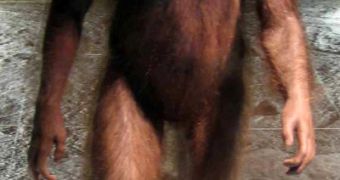Though many experts agree that modern humans originated in eastern Africa, the conclusions of a new, large investigation on genetic variations seem to indicate a different story, in which our ancestors in fact came from southern Africa.
Scientists conducted the new research on remnants of African hunter-gatherer populations, and carried out the largest analysis of their genomic diversity ever. This is the most complex study of its kind ever conducted, and it refutes many early findings about modern humans.
The discovery is bound to create some controversy, as each camp will undoubtedly seek to prove its hypothesis correct. The fact of the matter remains that the ancestors of modern humans left Africa about 60,000 years ago.
They quickly spread throughout the world in the subsequent millennia, and the great genetic diversity of today's population made it very difficult for researchers to track down its origins to a single spot.
But experts in the United Kingdom, led by Stanford University Department of Genetics postdoctoral fellow Brenna Henn and biology professor Marcus Feldman, say they finally cracked the mystery.
Together, the experts collected the largest datasets available on ancient hunter-gatherer populations, and then analyzed the genetic variations that all individual groups displayed. The results did not indicate eastern Africa as the starting point of it all.
In the paper describing the findings, which was published in the March 7 online issue of the esteemed journal Proceedings of the National Academy of Sciences (PNAS), the team argues that the origins of modern humans lie within a population called the Bushmen.
This is an old hunter-gatherer society, that speaks one of the Khoisan languages, Feldman explains. “Our belief used to be that the center of humans leaving Africa was in East Africa. This paper focuses attention on southern Africa,” he adds.
The expert goes on to say that Khoisan languages are characterized largely by the presence and use of the famous “click” sound. Until now, though Africa was known to the original continent, no one really knew how distinct groups evolved within it over the years.
“We've just never had enough people represented in our studies before. Without the participation of these people, patterns of evolution within Africa can't be determined,” Feldman says of including the hunter-gatherer datasets in the research.
For this study, experts analyzed variations in individual nucleotide bases that make up DNA in more than 25 African populations. About 650,000 such changes, called single-nucleotide polymorphisms (SNP), were tracked.
“The paper is also fascinating in that some hunter-gatherer groups have never mixed with their neighbors. The mystery is whether there ever was a connection between the different click-speaking peoples in the past,” Feldman explains.

 14 DAY TRIAL //
14 DAY TRIAL //